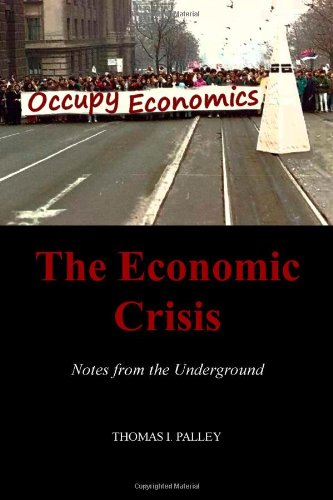The Economic Crisis: Notes from the Underground
by Thomas I. Palley, Createspace, 2012
This book provides a collection of short essays detailing the causes of the economic crisis and the failure of the economics profession to foresee and explain it. An old adage is “The winners get to write history” and that is proving true in the current moment. Open any major newspaper and the op-ed page contains articles by the same economists and policymakers as before the financial crash of 2008. One myth the winners are looking to promulgate is the crisis was not predicted and not predictable. This claim has a purpose as it excuses the economics profession from its catastrophic intellectual failure. The book challenges this “winners’ version of history” by showing the crisis was predictable and foreseen. The articles provide easy access to both theoretical and policy controversies that continue to be important, and they also show little has been done to fix the root problems. The academy is a club and it resists change because club members benefit from their intellectual monopoly. This monopoly means politicians are all fed roughly the same policy diet. Politicians are also subject to the pull of money and money likes the existing mainstream economic paradigm. Together, this constitutes a powerful sociological system that is hard to crack. Part of cracking it is exposing the failure of economists by showing the crisis was foretold and predicted.
